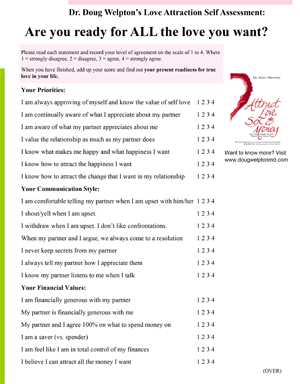Patricia is a forty year old woman who has had a successful law practice for many years. Patricia loves politics and has run for office in her city and state. She has won and lost in her bids to be elected. Even when she has lost an election she has continued to be involved in voluntarily helping people through her legal expertise and her connections in the community.
Patricia’s commitments to her law practice and to her volunteer work have kept her very busy. She has not married. Recently she fell in love with a man whom she looks on as a soul-mate, someone she would seriously considering marrying. In her courtship with him she has broken some of her family’s rules about spending the night together before marriage. Her parents not only disapproved of her conduct but of her choice of a man who would behave as he had.
As a child Patricia sensed problems in her parents’ marriage. Her mother experienced severe mood swings, at times leading to emotional outbursts. Her family lived on edge fearing these tirades. Her father took care of her mother by giving in and going along to try to keep her happy.
Patricia knew that her mother ran the family. She felt sorry for her father. He had an intense love of classical music and his wife showed no interest in accompanying him to the symphony. Patricia liked classical music and was thrilled to join her father by going to concerts with him starting in her childhood. It was the only time she had alone with him. It was the strongest bond she experienced in their father-daughter relationship.
At one point during her teens Patricia confided in her mother that she had not really liked the music in the latest concert they had attended. She was caught off guard when her mother shared this confidence with her father. Her father was so hurt that he never took Patricia to another concert. Patricia experienced the danger of confiding in her mother and of offending her father.
Now that she had just turned forty Patricia felt it was time she made her own decisions. She had lived long enough under the threat of cut-offs. She was old enough to be autonomous.
An opportunity opened up unexpectedly for Patricia to run for the office of attorney general. Patricia threw her hat in the ring. When she told her parents of the decision she had made they were furious. They asked how she could possibly make such an important decision without their consent. Their greatest fear was that she might lose the election. Patricia was not sure whether they were afraid for the pain it might cause her, or for the pain and shame it could cost them.
For years Patricia had a ritual with her parents. Every Saturday she had lunch with her parents at their beach club. She kept in touch with them every week through sharing this meal together. Her siblings were not part of it. She had this time alone with her parents. It was at Saturday lunch she had told them of her decision to run for attorney general.
Monday morning following that Saturday lunch Patricia’s father called. He told her she was no longer invited to Saturday lunch with them. He said their beach club lunches together had ended. Patricia knew that while her father did the dirty work, her mother was as much, if not more, behind this decision.
Patricia had enjoyed these lunches and it was a huge loss to have them stopped. She felt abandoned and desperate the first couple of days. She wept and in her loneliness she confided in her beaux. It reminded her of when her mother had engineered the cut off by her father from going with him to the concerts.
Then a surprise came. Guess what happened? Patricia suddenly found herself feeling free! It was not freedom from having to spend time with her parents. Not seeing them regularly continued to feel like a loss. She would still see them but not regularly and not for Saturday lunch.
What freed her was the truth. She had confirmation of what she felt in her gut. Never before had she felt such clear evidence of this truth: to be close to her parents she had to do what they wanted. If she dared to be her own person, to be herself by making her own decisions, she would be cut off when they disapproved.
Her autonomy to be herself now meant more to her than living for her parents’ approval. Patricia found her liberation exhilarating. She would continue to love and care for her parents, but she would not be bound by them. She would make her own decisions. Patricia realized she is enough and she matters on her own. She learned to love and approve of herself and to affirm that God loves her unconditionally.
St. John wrote: “Then you will know the truth and the truth will set you free.” (8:32).
The Power of the Truth
Download Dr. Welpton’s Audio Collection
Audios
CD1: Financial Infidelity & Money
CD2: Is my Partner the Right Person for Me?
CD3: To Stay or Not to Stay: Considerations before Divorcing
CD4: Stop Arguing for the Sake of Your Relationship


